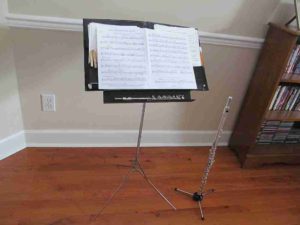Salute to Linda Ronstadt
The list of my favorite popular singers used to include the following. Among the men, there were Frank Sinatra (of course), for his vocal facility and his incomparable phrasing; Louis Armstrong, for his appealing voice, plus his being a trumpet ace and leader of a band; Doc Watson, for his acute coverage of the country idiom and his warm baritone; Andy Williams, for his agile voice and wonderful choice of songs; and Bobby Darren, who tastefully infused jazz into songs like his masterful Mack the Knife and bravely carried on his singing and arranging career while in effect under sentence of death. (He did die of heart disease at age 37.) Among the women, there were Judy Garland (of course), for her pouring of her complete self into every song and her incomparable phrasing; Keely Smith, for her earnest voice; Karen Carpenter, for her warm, sincere voice that always seemed as if she were singing for you alone; and the incomparable, original Peggy Lee, who also infused jazz tastefully into popular songs to produce impressive results. Armstrong, Watson, and Carpenter also seemed to be nice, humble people, so I was happy for them to succeed for that reason. Among groups, for me the top were The Mamas and The Papas, so intensely in harmony with one another and so blessed with good songs, and the Eagles, again with so many interesting songs that were well arranged.
But after a certain point, I put one singer at the very top of my list, the one I could listen to forever: Linda Ronstadt.
I knew her song with the Stone Poneys, Different Drum, which she recorded at age 21. I heard some of her rock songs over the years. I knew of her also because of my mother’s comment as we drove through Tucson that Ronstadt’s Hardware, a store we were at that moment passing, was Linda Ronstadt’s father’s company and that Linda Ronstadt was from Tucson. Since I grew up in Southern Arizona, that was a significant connection. Then one day I was watching TV and chanced on an old movie that she was in: The Pirates of Penzance, in which I seem to remember she co-starred with Kevin Kline. I thought that she did a very creditable job. She also appeared on Broadway in this operetta; a YouTube video in which she sings Poor Wandering One has comments from people admiring her vocal stamina, something that struck me too as I watched the movie. She was quoted in something I read about the time the movie came out that she hadn’t used her upper register in years and liked doing so again. My late first husband bought her CD of big band standards, Lush Life, and we listened to it often. Again, she did a pretty good job. She recorded duets with Emmylou Harris and Dolly Parton – she always did the country feel well.
Still, I didn’t pay much attention to her as a singer until my late first husband bought me a CD of her first album in Spanish, Canciones de Mi Padre (Songs of My Father – her father, despite his German name, identified as Hispanic). I Was Blown Away! You see, the songs were old popular songs from the border area, not modern at all, and they required a lot of vocal stamina in holding out the long notes and vocal gymnastics in singing the rapid syllables. She did it all extremely well. I particularly admired her performances of La Cigarra (The Cicada), about someone who has lost a love and now wants to die singing, like the cicada; Rogaciano El Huapanguero (Rogaciano the Balladeer), about a popular local singer who has died and is mourned by the whole pueblo; and La Charreada (a charreada is like a rodeo festival), narrating all that goes on at a charreada. Her version of the latter is a favorite of many people.
My husband bought me Mas Canciones (More Songs), with more vocal fireworks and more heart-wrenching romantic drama. I particularly admired Tata Dios (Father God), with the singer being a dying woman; Mi Ranchito (My Little Ranch), with the singer being a guy who lost his love and, apparently because of depression, his ranch; and the magnificent Crucifijo de Piedra (Stone Crucifix), about a woman who meets her lover at a church and is told he is dumping her. (The Jesus on the big stone crucifix is so moved by her plight that he cries with her.)
My next album of hers was Mi Jardin Azul: Las Canciones Favoritas (My Blue Garden: The Favorite Songs). This was a compilation album including some of the songs I mentioned above plus some more modern songs. Among the latter I particularly liked Mi Jardin Azul, referring to the garden that seems blue after a breakup; Adonde Voy (Where Am I Going), a sympathetic anthem about an illegal immigrant by Tish Hinojosa; and Mentira Salome (Salome Lies). Finally, I got her album Frenesí (Frenzy), from which the three songs I mentioned were drawn.
My second husband bought me a CD of popular favorites by Linda Ronstadt. I could listen all day to her singing Blue Bayou and Desperado and You’re No Good and Long Long Time and Someone To Lay Down Beside Me and Hurt So Bad. Again, she does it all: the strong held notes, the nimble fast syllables, and above all the heartfelt feeling she puts into every song. She could sing Ring Around the Rosie and make it memorable.
Linda Ronstadt is a titan of popular music and it is just sad that Parkinson’s (or whatever it is that afflicts her) cut short her singing career, although fortunately she did make it to senior status before she had to quit. I hope that she has a peaceful and happy rest of her life. Bless you for your many efforts to entertain us, Linda.





